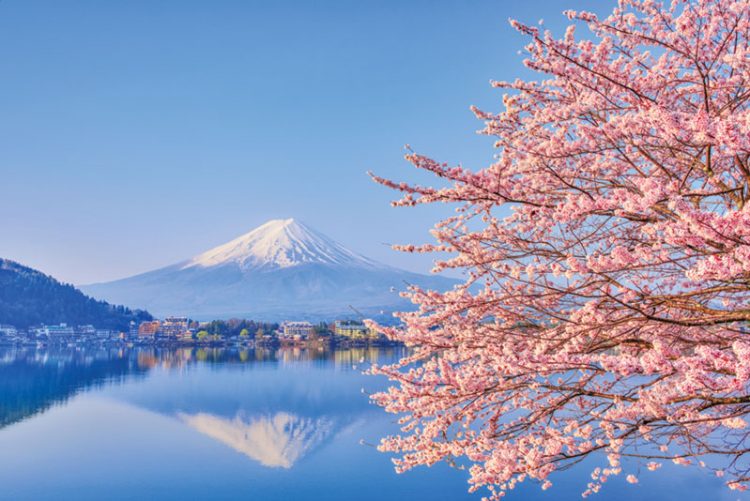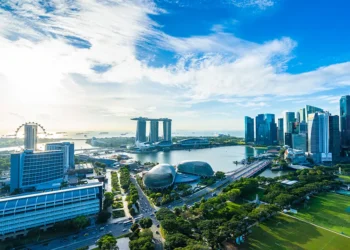In Part 1, the cover story of the IAG January issue, we examined the current state of play of integrated resort (IR) development in Japan including its rationale, recent events affecting the rollout, the pros and cons of likely IR locations and the current timeline. In Part 2, we compare and contrast the various candidate operators in the race.
Japan is the holy grail of the global integrated resort industry – one of the last remaining advanced economies in the world without casino gaming. In theory at least, a Japan integrated resort ought to be very lucrative.
Japan’s US$5 trillion economy is the third largest in the world, it’s a wealthy nation with a GDP per capita around US$40,000, and its local population has a proven propensity to gamble – with an enormous pachinko industry and the world’s largest horseracing market. Add to that a unique culture, spectacular architecture and design, and an exquisite F&B offering which attracts visitors from across the globe, and it’s easy to see why a Japanese IR should have both a robust local market and a constant stream of visitation sourced from domestic and international tourism.

Over the last decade or so every major IR company in the world – and a wide range of other companies too – have spent cold hard cash exploring a bid for one of up to three IRs to be licensed in Japan’s so-called “first round” (noting that a second round of IR licensing may or may not occur seven years after the first, depending on the perceived success of that first round). Candidate operators were coming out of the woodwork from across the globe, notably even as far as South Africa with Peermont Hotels (operator of 12 properties across South Africa and Botswana) expressing early interest – but no longer in the running.
COOLER HEADS PREVAILING
In the early running, many companies were very upbeat. Melco Chairman and CEO Lawrence Ho’s famous “whatever it takes” phrase summed up this sentiment. But ultimately, warm fuzzy “we love Japan” statements have given way to hard-nosed business decisions. The global pandemic has also played a significant moderating role. As the Japan IR process has continued, and most regulatory decisions have been unfavorable to candidate operators, a number of them have fallen by the wayside and the mood has become increasingly subdued.
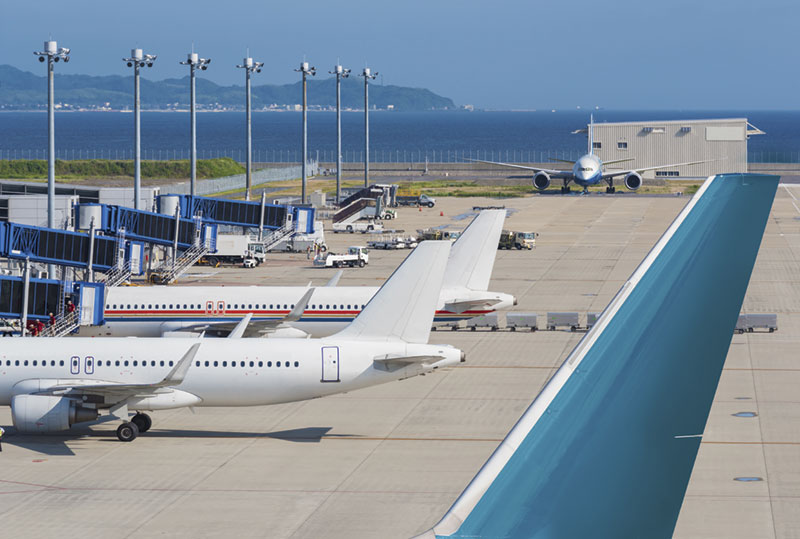
In early 2019 I was lucky enough to conduct long interviews with 13 very senior Asian IR executives as part of a 26,000-word University of Macau thesis entitled, “What makes one Asian Integrated Resort more profitable than another?” These executives averaged 27 years’ industry experience, and some had responsibility for tens of thousands of staff and multi-billion US dollar properties. Collectively they ranked the top three factors influencing Asian IR profitability, in order, as:
- A large population base in the nearby area
- Access dynamics (the ability for visitors and their money to get to the IR site)
- Pro-IR government, regulator and regulations (such as low tax rates, helpful labor laws, reasonable investment requirements and so on)
These three important factors are currently influencing the thinking of companies bidding in Japan. For example, one of the biggest issues with the Japan process is that Japanese authorities have not made any regulatory distinction between metropolitan and regional IRs, yet the local population bases are vastly different. The Tokyo metro region is the world’s biggest metropolitan agglomeration, with 38 million people. But regional locations Nagasaki and Wakayama, with local populations of less than half a million, have exactly the same IR requirements. This false equivalency does not make commercial sense.
Think also about access dynamics – announced candidate locations Osaka and Yokohama (and potential locations Tokyo, Chiba and Aichi) have international airports very close by, whereas regional locations Nagasaki and Wakayama have significant access issues.
CONSORTIA
It was every man for himself in the early stages of the Japan IR process, but lately, some of the interested companies have been joining forces in consortia. This makes sense for three reasons.
Firstly, doing business as a consortium is very much the done thing in Japan, especially for major projects. Whether you call them cartels, groups, consortia or the Japanese terms keiretsu or teikei, it’s long been common business practice for Japanese companies to operate as groups, with each company in the group having shareholdings in some or all of the others, and the group using common financing and even collective decision-making.
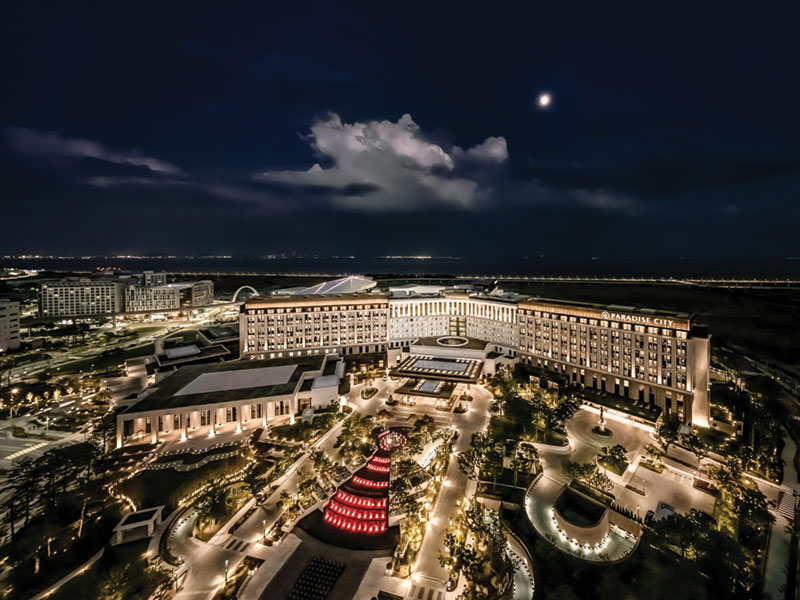
Secondly, the investment amounts are staggering. The US$10 billion figure (or even more) has been casually thrown around for major metropolitan IRs, and even for the “smaller” regional IRs the mooted investment level seems to be around US$3 billion. To put this in context, Wynn Palace and Galaxy Macau, and the two Singaporean IRs, all have total investments to date around US$3 billion to US$4 billion. It would be fair to describe these as amongst the largest and most luxurious IRs in existence. Yet investment levels two to three times larger than this are being talked about in Japan. Forming consortia will help spread the enormous investment over several participants.
Thirdly, a variety of skills and capabilities are going to be necessary to operate a Japanese IR, and there’s really no single company which possesses all of them. There will be a need for local Japanese expertise as well as international know-how to run large scale IRs.
The field will continue to thin as candidate operators, investors and other interested parties continue to partner up, and some operators relegate Japan to the “too hard” basket – especially in the pandemic-ridden climate we find ourselves in.
JAPANESE OPERATORS
Sega Sammy was formed in 2004 when Sega Corporation, famous for its game consoles and Sonic the Hedgehog character, merged with Sammy Corporation, a pachinko and pachislot machine manufacturer. Sega Sammy has since added resort operations, owning 45% of Korean integrated resort Paradise City with Korean casino operator Paradise Co owning 55%. The US$1.4 billion Paradise City IR opened in 2017 in Incheon, close to the international airport servicing Seoul. Sega Sammy has made it known that it is pursuing Yokohama as an IR location, releasing a concept and artist’s impression for a Yokohama IR in February 2020 when it also announced a number of partnerships relating to its IR bid, including with UK architecture and design firm Foster + Partners. Sega Sammy’s Chairman Hajime Satomi ranked number 44 on the Asian Gaming Power 50 in 2020. His son Haruki Satomi is President and Group CEO.
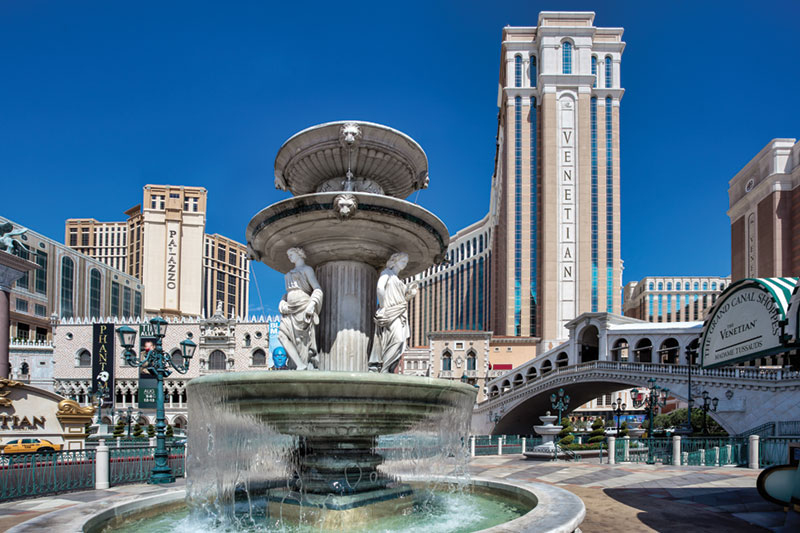
The name Okada is well known to IAG readers – both the man himself Kazuo Okada and the IR he founded in the Philippines, Okada Manila. Okada has been in the industry for decades through slot machine manufacturing company Aruze, Okada Manila parent Universal Entertainment Corporation, and his onetime position as Wynn Resorts largest shareholder and Vice Chairman. Embroiled in bitter litigation for much of the past decade, we haven’t heard any serious talk of Okada making a bid in Japan, although it could be argued he has more IR experience than any other Japanese businessman.
LAS VEGAS OPERATORS
Japan has a complicated relationship with the United States, which stretches back to the post WWII period. Certainly the US has had a major influence on Japan, and even today there are 23 US military bases in Japan, with some 50,000 personnel. This number swells to 100,000 Americans if you count dependents and contractors. Baseball is widely considered to be the most popular sport in Japan (noting that sumo is the country’s official national sport), and some Japanese have been known to refer to their country, only half in jest, as “the 51st state.”
Some experts have postulated that Japan may prefer major Las Vegas operators over major Macau operators, given its at-times antagonistic relationship with China. The only problem is three of the four major Las Vegas operators – Caesars, Las Vegas Sands and Wynn Resorts – have withdrawn from the Japan IR process.
In the first earnings call after Las Vegas Sands announced its withdrawal from Japan, then-President and COO (now-Chairman and CEO) Rob Goldstein said, “We couldn’t make it work. We sure tried … We wish the construct was more welcoming to the investor, but it wasn’t.” Goldstein’s boss, then-Chairman and CEO Sheldon Adelson added, “… there were just too many negative regulations that we couldn’t live with.”
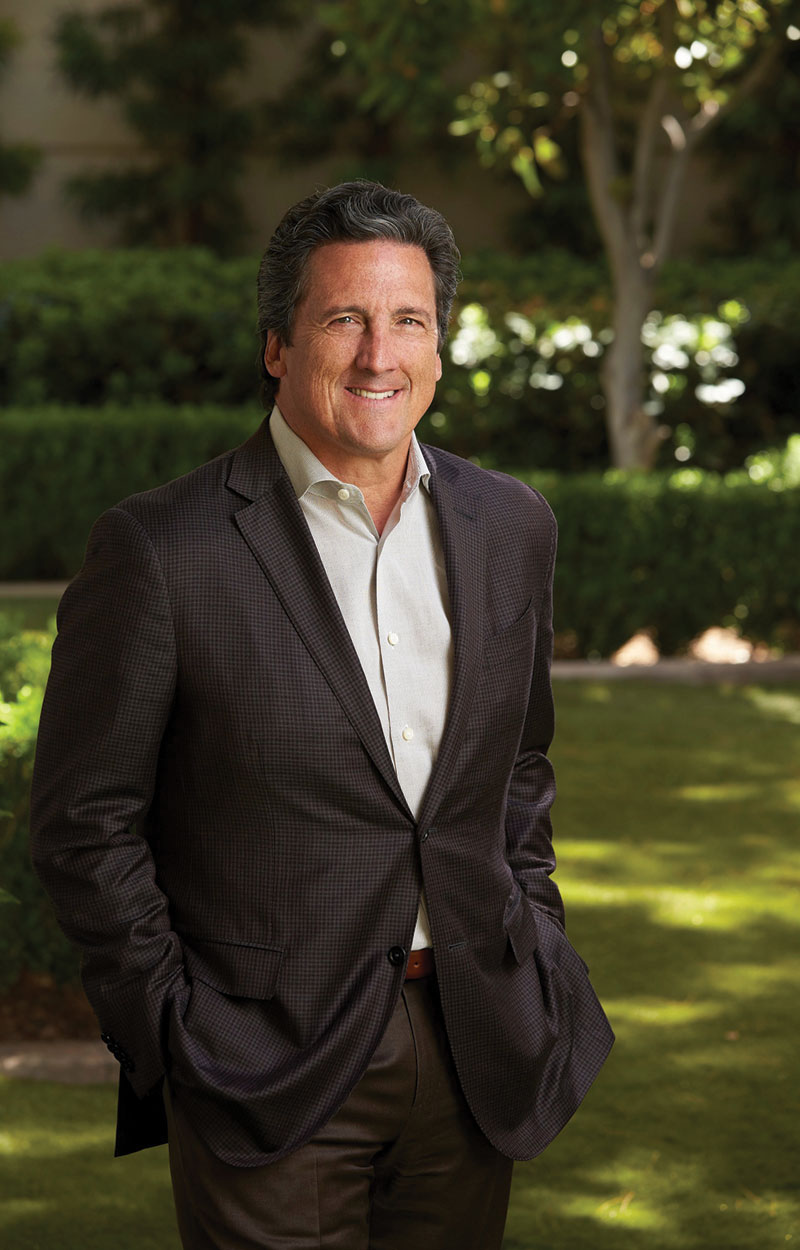
This should be a danger signal to Japan – there are serious commercial issues regarding ROI given the prevailing regulations and investment levels required. Timing is also an issue with the global pandemic decimating the industry. Some feel the resultant nine-month delay in the process should be extended to get a better long-run outcome for all.
The one remaining major Las Vegas operator – MGM Resorts – finds itself as the sole qualified bidder in Osaka’s RFP process. Such a lack of competition will surely change the dynamic for MGM Resorts and their Japanese consortium partner, ORIX. Former Chairman and CEO of MGM Resorts, Jim Murren, was very upbeat on Japan, but his successor, Bill Hornbuckle, appears much more circumspect. On an MGM earnings call in July last year the new Chairman said, “… we like the fact that there is probably going to be a delay and a reopening of some of the conversations that will hopefully make this a better investment for anyone that is interested in it, most notably us.”
MACAU OPERATORS
Of the six Macau concessionaires, three have US links: MGM, Sands and Wynn. The other three – Galaxy, Melco and SJM – have all expressed interest in Japan at various junctures.
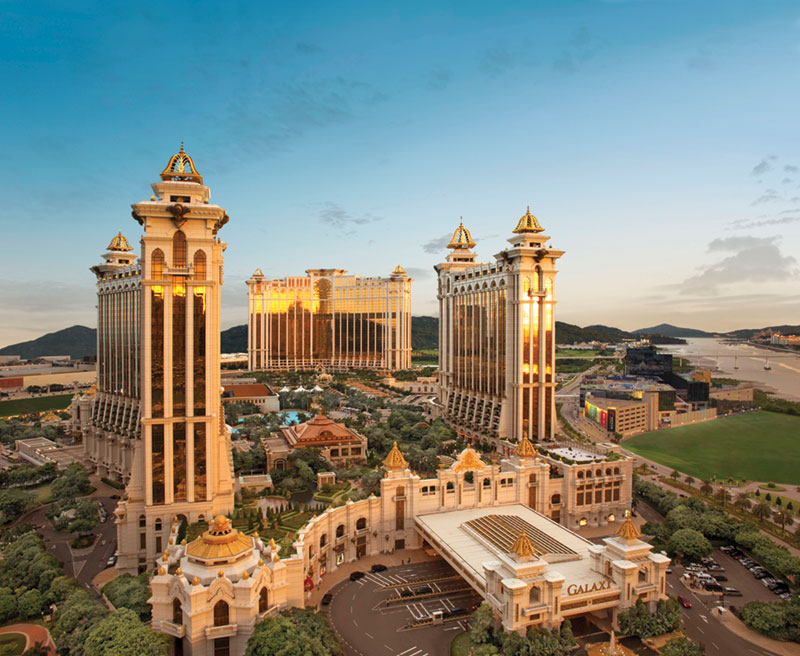
Galaxy is arguably best positioned of the three, the most obvious reason for that being the enormous treasure chest of cash sitting on its balance sheet – more than US$6 billion. While the other five Macau concessionaires having been readily raising debt to shore up their cash reserves during the global pandemic, Galaxy has the financial capacity to ride just about anything out. The conservative Japanese government will surely find this kind of financial strength very attractive.
Galaxy has the largest team on the ground in Japan of any non-Japanese company, with some 25 or so employees manning the Galaxy Entertainment Japan office in Tokyo. Galaxy often points to their Okura branded hotel at Galaxy Macau to push their Japanese chops, and to their 5% ownership of Monaco’s 158-year-old SBM (owner-operator of the world-famous Monte Carlo casino) to dilute their Chinese roots and endow a European flavor to their bid.
On the downside, Galaxy has been active in Japan for quite some time but is yet to announce a consortium partner and yet to focus on any one particular location in Japan. It’s also questionable whether any of the four current locations would be of interest to Galaxy – Nagasaki and Wakayama are too small, Galaxy has already withdrawn from Osaka leaving that location to MGM, and Yokohama is known to be problematic in a number of ways referred to in Part 1 of this article, not least of which its upcoming mayoral election and the anti-IR stance of the majority of the Yokohama people and some mayoral candidates. If Galaxy is to chase a license, it’s likely to be in one of the higher-population locations of Tokyo (likely at Odaiba or perhaps the former Tsukiji fish market) or Aichi (next to Chubu Centrair airport servicing Nagoya), neither of which have officially declared and both of which are rapidly running out of time.
And ultimately the question remains, will Japan accept such a powerful company from China? Galaxy will argue its roots in Hong Kong and Macau set it apart, but it’s unlikely to be perceived that way in Japan.
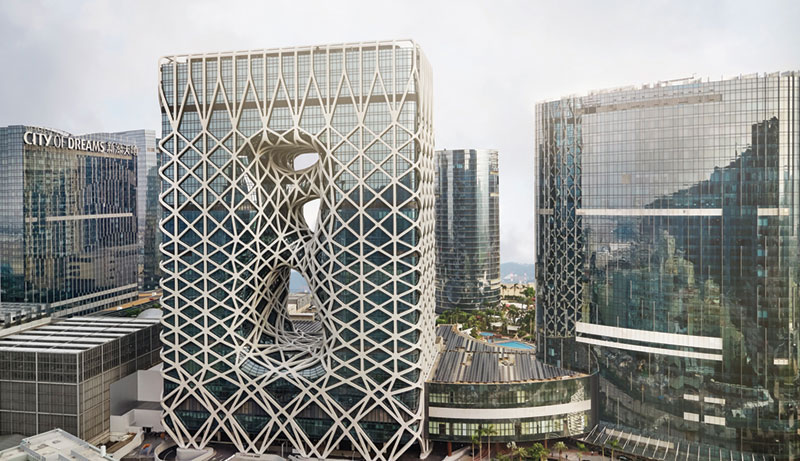
Melco has made its near obsession with Japan clear for the past 15 years. Chairman and CEO Lawrence Ho readily and regularly highlights his passion for the country. In addition to his famous “whatever it takes” statement, he has promised that both he and his entire executive team will move to Japan should the company win a Japanese IR license. There are even Japanese-style toilets in flagship hotel Morpheus at City of Dreams in Macau! Formerly following an Osaka-first strategy, Melco has now switched to Yokohama-first.
In December last year, Melco confirmed to IAG that it was still willing to invest US$10 billion in a Japanese IR (despite the current pandemic), pointed to its prior hands-on history with successful partnerships and claimed an “embedded Japanese culture in its management and operation.” On the downside, fairly or not, some criticize Melco for a form-over-substance approach, and there is no doubt the company comes across as more daring and risk-taking than its peers. Whether that is perceived as a good thing (think of the Japanese obsession with design, beauty and tech) or a bad thing (think of the conservatism of the Japanese establishment) remains to be seen. And, along with Galaxy, Melco shares the fact that it will be perceived as a Chinese company.
SJM had made their interest in Hokkaido known, but since Hokkaido effectively withdrew from the race, for the first round at least, we’ve heard nothing from SJM. If they are making representations behind the scenes, they are keeping very quiet about it.
Suncity is of course not strictly a Macau operator, but their power base is in Macau. Their history of being a VIP gaming promoter with clubs in all six Macau concessionaires, and a number of other properties around Asia, has allowed them to gain valuable experience with a very wide range of IR offerings across the continent. Suncity Group was officially founded in 2007, but their roots in the Asian gaming industry go back decades. The company’s desire to transform into a pan-Asian IR operator is clear, with their Hoiana property in Vietnam now open, their Resorts World Westside property on the way in Manila, a majority holding in Tigre de Cristal in Vladivostok and other interests and operations in Korea and Cambodia.
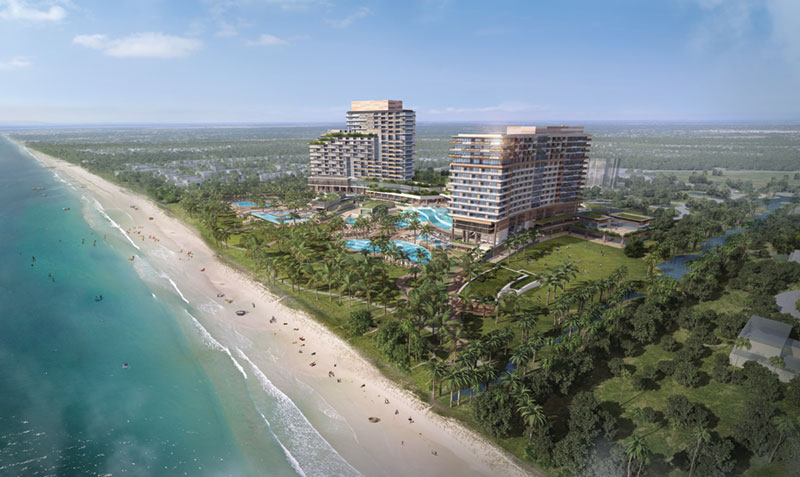
Suncity’s “IR 2.0” concept, developed with world-renowned architectural firm AEDAS, is said to combine “Wakayama prefecture’s historical tradition, natural landscape and cultural essence.” Last month Suncity made it clear they will take advantage of Wakayama’s marina to create a sustainable tourism offering transforming Wakayama and Marina City into a haven for yachting and presenting an image of Wakayama centered around sport and local resources. Further boosting their bid is the company’s long history in diversified non-gaming, particularly in F&B and entertainment offerings. To their credit, Suncity has spared no expense in promoting and explaining their “IR 2.0” concept in Japan and to the wider Asian industry too – via local connections on the ground, an office in Wakayama, and a well-coordinated PR campaign taking advantage of Japanese and other Asian media outlets.
Just as with Galaxy, Melco and SJM, Suncity would need to overcome the perception of being a Chinese company. However, Suncity has the capacity to deeply bury itself within a Japanese-led multi-party consortium, in a way that would be more difficult for larger, more established IR operators. This may well be a trump card for them.
NORTH AMERICAN REGIONAL OPERATORS
Hard Rock is easily underestimated in Japan, as it’s not a brand well known for gaming in Asia or as a Las Vegas icon. The brand is known in Japan for its iconic Hard Rock Cafés – there are around half a dozen across the country – the first of which opened in Roppongi, Tokyo, in 1983. However Hard Rock is an icon – arguably the industry leader – in tribal gaming in the US. And it’s in expansion mode.
With around a dozen casinos around the world, including its flagship guitar hotel near Miami, it has greatly strengthened its Japan credentials with two key hires. The first is Hard Rock International’s Asia CEO, Ed Tracy, whose exceedingly strong industry credentials date back decades and include a particularly successful tenure in Macau as CEO of Sands China Limited. One of Tracy’s early moves was to hire Ado Machida as Hard Rock Japan President. Machida’s credentials in business include Goldman Sachs and Boston Consulting Group and in politics include a range of senior policy positions and advisor roles for US presidential campaigns. It doesn’t hurt that he is fluent in Japanese and English, having graduated from Kyoto and New York Universities.
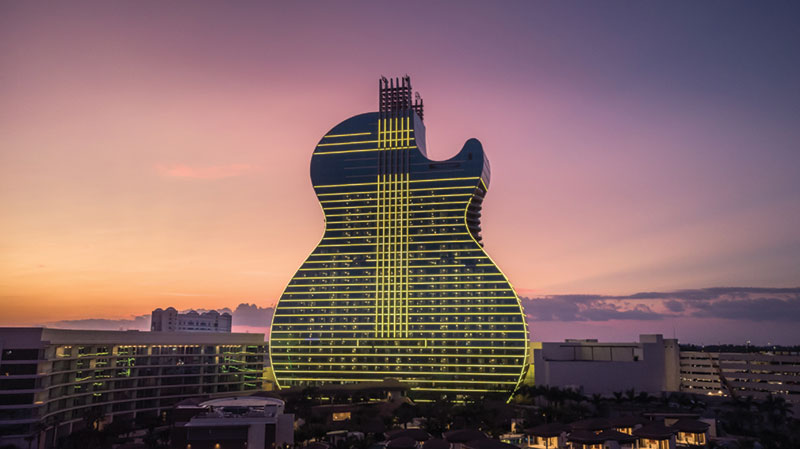
Last month Hard Rock announced the acquisition of The Ritz Club casino license in its spiritual home of London, the first Hard Rock Café being established there in 1971.
Previously focusing on Hokkaido, Hard Rock continues to officially lobby in favor of Tomakomai City in Japan’s northernmost prefecture, but we would not be surprised to see them emerge as a contender in Nagasaki or indeed any other regional location in Japan. Tracy and Machida make a formidable team to be taken seriously and have the confidence and backing of Hard Rock Chairman Jim Allen, who has worked with Tracy on and off for decades.
In 2018 Rush Street Gaming founder and Chairman Neil Bluhm committed to investing US$2 billion in a Hokkaido IR. At the time the Chicago-based US real estate and gaming giant had said it would focus exclusively on Hokkaido, but that was before Governor Suzuki effectively pulled Hokkaido out of the race due to “environmental concerns.” Since then, Rush Street has remained quiet, but IAG is aware the company continues to be interested in Japan. Given its known preference for regional gaming, and the likely amount of accessible capital, Rush Street will pursue a regional location, while still understanding the multi-billion dollar investment that would require.
The Clairvest Group, which owns Japanese subsidiary Clairvest Neem Ventures, is a Canadian investment company with casino and resort interests in Canada, the US and Chile. Another company which made plenty of noise about Hokkaido before (and even after) Governor Suzuki’s effective withdrawal of Hokkaido from the race, Clairvest switched their focus to Wakayama, but unlike their competitor in that two-horse race, Suncity, we have heard little from them. Clairvest have made it clear they are merely an investor, but we are yet to hear of which operator they intend to partner with. Unless they make some bold moves soon, it’s hard to see Clairvest securing a license.
OTHER CANDIDATE OPERATORS
The most established operator not yet mentioned is Genting Singapore. The Singaporean IR operator focused on Osaka, and then Yokohama, signalling their desire for a major metropolitan location. President and COO Tan Hee Teck (ranked number 24 on the 2020 Asian Gaming Power 50) has done a creditable job representing Genting in Japan, coming across as polite, professional and likeable – all admirable qualities appreciated in Japan. It was an astute move by Tan’s boss, Genting Berhad Chairman and CEO KT Lim (ranked number 5 on the 2020 Asian Gaming Power 50), to make their Singapore branch the face of Genting’s bid. Japan’s admiration of squeaky-clean Singapore is long established, with the powers that be in Japan often repeating their goal of making the Japanese IR industry the “most regulated in the world.” The fingerprints of Singaporean regulation are all over Japan’s already-established JPY6,000 entrance fee for locals.

Genting Singapore is playing their cards close to their chest in Japan, but this was a successful tactic their Malaysian parent company adopted in Singapore during the first decade of this century, securing one of just two highly coveted IR licenses. On the downside, Genting’s business has been decimated by the global pandemic perhaps more than any other major gaming company in the world, given their large exposure to the casino cruise business. It couldn’t have come at a worse time, when Genting is spread thinly around the globe. The US$4.3 billion Genting Las Vegas is nearing completion, Resorts World New York and home base operation Resorts World Genting in Malaysia are both facing pandemic distress. KT Lim’s son Lim Keong Hui (ranked number 30 on the 2020 Asian Gaming Power 50) stepped down as Deputy CEO of Genting Hong Kong in August after the company suspended all payments to its creditors to preserve liquidity amid pandemic-related troubles in its cruise business.
In November, as part of their 2020 Q3 update, Genting’s language on Japan changed from their standard “continuing to monitor developments and anticipate the RFP” line to a more cautious tone: “We will evaluate the conditions of the Request-for-Proposal (RFP) and the investment environment when the formal bidding process begins and will respond with a proposal if these conditions meet the Group’s investment criteria.” [emphasis added]
Could this be the first chink in Genting’s armour?
Bloomberry Resorts is owner and operator of Solaire, often described as the Philippines’ most successful IR. The company has expressed interest in Japan, and at one stage were linked to Wakayama. But they have been very quiet of late, possibly focusing on riding out the pandemic in their home country. When questioned about Japan 12 months ago by IAG in a face-to-face interview, Chairman and CEO Enrique Razon Jr highlighted a lack of clarity over locations, regulations and escalating IR cost estimates. Arguably, not much has changed.
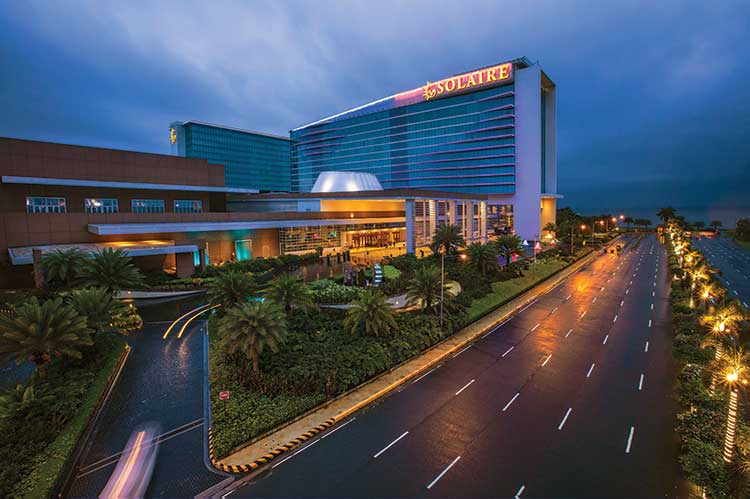
Chairman and CEO of NagaCorp Dr Chen Lip Keong (ranked number 12 in the 2020 Asian Gaming Power 50) has been in expansion mode for the past 25 years. Since 1995, when NagaWorld started as a boat moored in the Mekong river, Dr Chen has been on a winning streak with his 70-year exclusive casino license for Phnom Penh, a highly favorable tax and regulatory regime and the company’s listing on the Hong Kong Stock Exchange in 2006. He brought the property on shore, constructed the US$400 million Naga2, and is accelerating “full steam ahead” on the US$3.5 billion Naga3 development.
As if all that wasn’t enough, Naga enjoys status as probably the least pandemic-affected gaming company in the world and is developing a property in Vladivostok in Russia’s Primorye gaming zone. NagaCorp has expressed interest in Japan, particularly Nagasaki, as recently as mid 2020. We haven’t heard much from them since then, but don’t be surprised if NagaCorp enters the conversation at some stage.
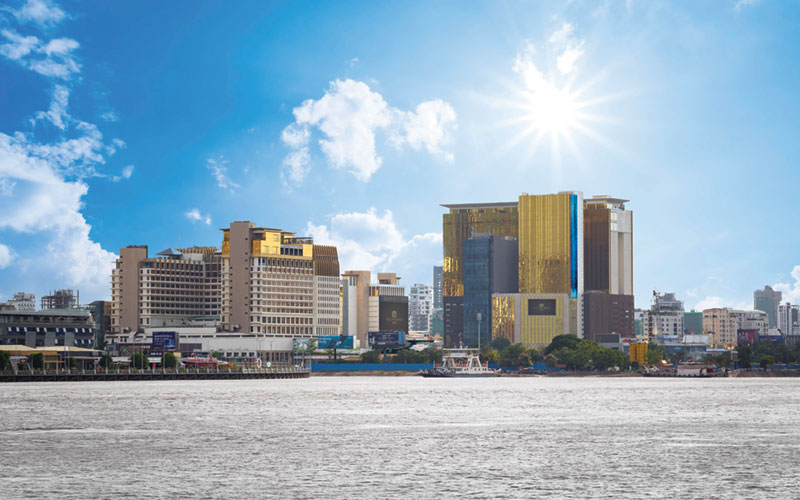
Another dark horse in the Nagasaki process is Casinos Austria. CEO Christoph Zurucker-Burda announced in late October they had submitted their response to Nagasaki’s request-for-concept, and they are confirmed as a bidder in the RFP process. Casinos Austria does have a history of operating on the other side of the world – it owned and operated Casino Canberra in Australia from 1994 to 2014.
MIXED MARRIAGES
Some of the bidding companies have already formed into consortia, thus strengthening their bids through combined resources and capabilities. The following three consortia are all pursuing an IR license in Nagasaki.
Current, Get Nice, Guangdong Group, Success Universe and ITC Properties have formed a consortium which may even contain more members. Current Corp is part of SRC Group, a Japanese investor with real estate interests. Hong Kong-listed Get Nice is the former operator of the Waldo casino and Grand Waldo casino in Macau, the first ever gaming property in Cotai. The Grand Waldo property was ultimately sold to Galaxy and converted into Broadway, which became part of the greater Galaxy Macau-Broadway offering. Guangdong Group is a Macau-based VIP gaming promoter with real estate interests in Hong Kong. ITC Properties is a Hong Kong-listed company with real estate investments including Macau’s One Oasis residential development, and Success Universe operates the Ponte 16 and Sofitel hotel casino property in Macau’s inner harbor region.
Oshidori and Mohegan Gaming and Entertainment (MGE) announced their partnership in the last week of January. MGE is best known for its Mohegan Sun tribal casino in Connecticut, one of the largest tribal casinos in the country. Its stage-one US$1 billion Inspire resort, set to open in Incheon, South Korea, has been delayed several times, but CEO Mario Kontomerkos has repeatedly reaffirmed his company’s commitment to Korea, and the total investment for Inspire Incheon is said to be US$5 billion over multiple stages. Mohegan last year won the bid for a casino at the former Athens international airport, to be called Inspire Athens.
Oshidori was formerly unheard of in the Asian IR industry, but burst onto the scene with the June 2020 high-profile hiring of Alex Yemenidjian as Chairman and CEO of subsidiary Oshidori International Development Ltd, tasked with leading Oshidori’s Nagasaki bid. Yemenidjian’s pedigree is beyond question; some describe him as the long-time right-hand man of the legendary casino billionaire Kirk Kerkorian – just about as close as you can get to Las Vegas royalty. Kerkorian was majority shareholder of MGM Studios and MGM Resorts and was a major player in the Las Vegas gaming industry for decades. Yemenidjian, who has a finance background, is a former co-owner of Tropicana in Las Vegas and a long-time MGM Resorts executive, having served as Chairman and CEO of Metro-Goldwyn-Mayer Studios Inc from 1999 to 2005, and as a board member from 1997 to 2005. He was an executive of Kerkorian’s Tracinda Corporation, majority owner of MGM, for most of the 1990s. Both of Armenian descent, Yemenidjian and Kerkorian were so close they often played tennis together. Oshidori is known to be backed by a number of wealthy Hong Kong-based business interests.
In August 2020 Pixel Companyz, Groupe Partouche and other unnamed consortium partners announced their partnership, formed to bid for a Nagasaki IR. Pixel Companyz is listed on the Tokyo Stock Exchange and is engaged in a variety of businesses including gaming, eSports, fintech, solar power facilities and resort development. In an exclusive November interview with IAG, CEO Hiroaki Yoshida said, “We’ve always had an interest in IRs … we need to continue to partner with companies that can complement in areas where we lack. Now that we have announced our entry in the market, we can plan further expansion and accelerate our relationship-building.” Groupe Partouche were formerly partnered with Oshidori, but this relationship was terminated in May 2020 prior to the arrival of Yemenidjian. Strangely, Partouche only issued a press release announcing the fact some three months later, in August 2020. Partouche operates 42 club-style casinos (mostly in France but also in Belgium, Switzerland and Tunisia) in addition to hotels, restaurants, spas and golf courses. The company employs just under 4,000 people.
WHERE TO NOW?
Under the current timeline (explained in Part 1 of this article), any unannounced locations (Tokyo and Aichi are the two most talked about) would need to move very quickly indeed to jump into the race. If that doesn’t transpire, we’re left with two metropolitan locations, Osaka and Yokohama, and two regional, Wakayama and Nagasaki.
Osaka has only one bidder left, MGM, and while that company has been amongst the most enthusiastic candidates over the years, their change of Chairman, the prevailing pandemic and the solo bidder dynamic will likely hinder that process. Yokohama is hampered by the upcoming mayoral election and lack of clarity on what happens if an anti-IR candidate wins. Wakayama has only two candidates, Suncity and Clairvest, and the latter has been conspicuous by their silence. This leaves Nagasaki as potentially the only interesting race, but the world’s biggest IR companies have eschewed this location because of the small population base and access difficulties with the Huis Ten Bosch site.
It would also make sense for there to be at least one successful Japanese company, and the obvious contender is Sega Sammy, who have made it clear Yokohama is currently their preferred location.

Given all this, perhaps the process may play out a little differently to current expectations. One possibility is a further delay in order to drum up more competition in terms of both potential IR locations and candidate operators. Another is that Japan decides to start with just one IR, not three, perhaps in Nagasaki or even Wakayama, as a kind of test before proceeding with the main game in a major city like Tokyo or Osaka.
Only time will tell.






